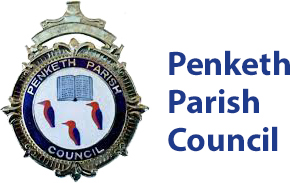About Penketh Parish Council
Welcome to the Parish of Penketh a suburb of Warrington, Cheshire. Penketh is around 2 miles away from Warrington Centre and mid-way between the cities of Liverpool and Manchester.
Penketh has a population of over 8,000 people and is continuing to grow. The Parish is split into 2 wards, East and West with a total of 12 Parish Councillors who take an active part in the running of the Community.
Penketh Parish Council manages 1 community centre located on Honiton Way, Penketh. The centre has a wide range of clubs, groups on offer for all ages. The community centre is also available to hire in the daytime for private functions by phoning the Parish Office on 01925 724515 or emailing leisure@penkethparishcouncil.org.uk.
The council maintain 3 recreational sites along with the Penketh Pool and Community Centre. These are Greystone Recreational Ground, Withinshaw Recreational Ground and Penketh Gardens.
Penketh Parish Council is the first tier of local government, and is therefore the closest to the local community, followed by Warrington Borough Council.
Parish and Town Councils were created in law, and they can only act within the law, by exercising their powers and functions which have been conferred on them by Statutes (i.e. Acts of Parliament).
Parish Councils have a number of powers available to them, but the ability to exercise any such powers may sometimes depend upon a number of other factors, such as land ownership, financing, or planning approval.
Penketh Parish Council elects a Chairperson in May of each year, and is elected by the Council. Cllr Geoff Fellows is the Chair of the Parish Council for 2023-24, with Cllr Andrea Haywood as Vice Chair.
In order to support their activities, Parish Councils need funds, and they are primarily funded from a small percentage of the Council Tax charge, made by Warrington Borough Council. to parishioners. This is known as the Precept.
For the majority of Parish Councils. the precept is a small portion of the whole Council Tax Bill, and is the main source of income. The level of this precept is at the discretion of the parish, based on the Council's budget, and the number of Band D equivalent properties within the parish.
Penketh Parish Council does not receive any Government funding, or income from business rates, but it does receive a very small amount of additional income, from the hire of the Community Centre hall and its meeting room.
Penketh History
At the end of the 18th. century Penketh was a small hamlet under Great Sankey consisting of 75 houses, where some 300 inhabitants earned their living from farming or by carrying on trades such as cobbling or carpentry in their own homes. The name Penketh is an old English word probably dating back to before Roman times, made up of the Celtic words “Pen” meaning “end or edge” and “coed” meaning “woods”. The “end of the wood” in this case is Burtonwood, once an extensive forest. One of the first mentions of the Penketh family was William de Penketh who was witness to a charter in 1240. In 1280 Gilbert and Robert Penketh became joint lords of the Manor of Penketh. The Penketh family lived in Penketh Hall from around 1216 to 1624. The most well-known member of the Penketh family was Thomas Penketh, who died in 1487. He was a friar and Head Hermit of St. Augustine, England. William Shakespeare mentioned Thomas Penketh for his part in the conspiracy with Sir Edmund Shaw to overthrow the English throne in favour of Richard, Duke of Gloucester, who later became Richard the Third.
Penketh was described a few hundred years ago as running between two Inns or Public Houses: from the Red Lion Inn on Penketh Road to the Crown and Cushion Inn on the corner of Stocks Lane and Farnworth Road. The village stocks (for public punishment) were situated outside the Wesleyan Chapel on Stocks Lane, opposite the Crown and Cushion. The Red Lion Inn played a central role in the life of Penketh. Parish Council meetings were held there, and Parish records were stored for over 300 years in the Penketh Chest, which was originally kept in the Red Lion. The documents in the chest included Parish Council minutes, Constable’s accounts, Highway accounts, rates and bills and Poor relief records.
